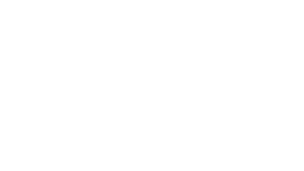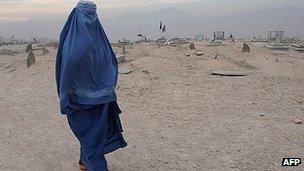Jailed Afghanistan rape victim Gulnaz is freed
- Published

Gulnaz gave birth to a daughter in jail
An Afghan woman jailed for adultery after a relative raped her has been freed, her lawyer has told the BBC.
The woman, known only as Gulnaz, was released on the orders of President Hamid Karzai, who pardoned her earlier this month.
Her lawyer told the BBC that she was released without precondition, dispelling fears that she may have to marry her attacker.
The case drew international attention to the plight of many Afghan women.
Gulnaz - who was sentenced to 12 years in prison after reporting that she had been raped by her cousin's husband - recently gave birth in jail to a daughter.
Her lawyer, Kimberley Motley, told the BBC that she was healthy and happy to be released.
Ms Motley said that Gulnaz is now staying in an undisclosed location in Kabul with her child after being released overnight on Tuesday "for her own safety away from the blaze of publicity".
"She is now free to lead a normal life without the threat of further legal action," she said.
"I hope this historic case will set a legal precedent for other persecuted women in Afghanistan.
"I would like to pay tribute to President Karzai and the Afghan justice ministries for taking the measures required to win her freedom."
Ms Motley said that Gulnaz is at present "coming to terms with her future" but she is free to marry whoever she wanted in future.
'Moral crimes'
Human rights groups say hundreds of women in Afghan jails are victims of rape or domestic violence.

Human rights activists says Afghan women are still denied their rights
Gulnaz earlier said she was charged with adultery after being raped in 2009. Initially she was sentenced to two years in jail, but when she appealed it became 12 years.
The most recent appeal saw her sentence reduced to three years before the presidential pardoning.
The attack on her was brought to light by her pregnancy. Her attacker was jailed for 12 years, later reduced on appeal to seven. He remains in jail.
Gulzaz's story was included in a European Union documentary on Afghan women jailed for so-called "moral crimes" but the EU blocked its release because of concerns for the safety of the women portrayed.
The EU's Ambassador and Special Representative to Afghanistan, Vygaudas Usackas, said earlier this month that her case has highlighted the plight of Afghan women, who 10 years after the overthrow of the Taliban regime often continue "to suffer in unimaginable conditions, deprived of even the most basic human rights".
Half of Afghanistan's women prisoners are inmates for "zina" or moral crimes.
Many Afghan women's rights activists say there must be an end to the culture of impunity and police must punish all those behind violence against women.
- Published2 December 2011
- Published1 December 2011
- Published30 November 2011
- Published10 November 2011